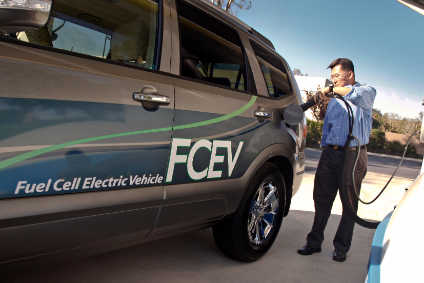As car companies start to ramp up low volume production of fuel cell vehicles the major stumbling block globally is a hydrogen refuelling infrastructure. The question is who is responsible for building such a thing? The car companies? Governments? Fuel companies? All of the above? Cost is a major issue: too expensive for many company and authorities while the oil giants have an infrastructure do they want to hand it over to a rival fuel?
The answer may lie further down the chain with local authorities. In Leeds, England, households could start heating their homes and cooking using hydrogen gas within the next 15 years under a radical plan to phase out the use of natural gas.
The entire gas network for the city, including all domestic gas boilers and cookers, would be converted to run on hydrogen under the proposed project.
The plans to make Leeds a 'hydrogen city' would cost an estimated GBP2bn (US$2.8bn), according to Northern Gas Networks (NGN), which is responsible for distributing gas across northern England and has received funding from energy regulator Ofgem to develop the idea.
It believes Leeds could be converted by 2025-30 and the plan could be replicated in other major cities. It's all part of a plan aimed at helping the UK meet its emissions targets. Britain needs to comply with its Climate Change Act, which requires an 80% cut in emissions on 1990 levels by 2050.
NGN is working to redesign the Leeds gas network to build a series of 'steam methane reformer' plants around the city, taking methane from the national gas grid and converting it into hydrogen by removing the carbon.
The carbon would then be disposed of using carbon capture and storage technology, for example by pumping it into a disused North Sea gas field, while the hydrogen would be transported to households and businesses in Leeds – and so there would also be a ready-made infrastructure for cars.
In fact, would it even be possible, therefore to fill up at home?







